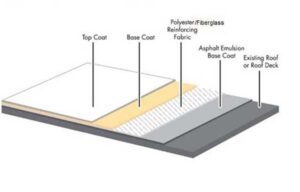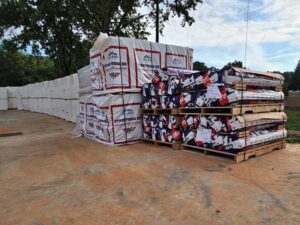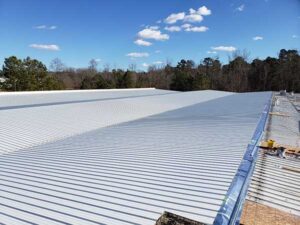Owning or managing a commercial property comes with a long list of responsibilities, and one of the most important is ensuring the roof is in proper working condition. Commercial roofing systems have unique requirements compared to residential roofs, and it’s crucial to understand the various options and maintenance needs. Skyline Contracting’s comprehensive guide will provide a comprehensive overview of commercial roofing services, including the different roof types, commercial roof repairs and replacements, and tips for prolonging the life of your roof.
Whether you’re planning a new construction project or need to repair an existing commercial roof, Skyline Contracting will help you make informed decisions to protect your investment. Call us today for your free, no-obligation quote!
Commercial Roof Types
When it comes to commercial roofing, there are several different types of roofs to consider. Each type has its own unique advantages and disadvantages, so it’s important to carefully evaluate your options to determine the best fit for your building and needs.
At Skyline Contracting, our team of experienced commercial roofing service experts in Georgia can help you navigate the various commercial roof types and select the one that will provide the optimal combination of durability, energy efficiency, and cost-effectiveness for your property.
 Built-Up Roofing (BUR)
Built-Up Roofing (BUR)
Composed of multiple layers of bitumen (asphalt or coal tar) and reinforcing fabrics, topped with a layer of gravel or other protective material, built-up roofing systems are known for their durability, long lifespan, and excellent waterproofing capabilities. However, they can be heavy, require professional installation, and can be more costly compared to other roofing options.
 Modified Bitumen Roofing
Modified Bitumen Roofing
Modified bitumen, an evolution of built-up roofing (BUR), incorporates asphalt with additives such as SBS (styrene-butadiene-styrene) or APP (atactic polypropylene) to enhance performance. This roofing material is flexible, resistant to UV rays and temperature extremes, and generally easier to install compared to BUR. Nonetheless, it tends to be less durable and can be more prone to punctures.
 Single-Ply Membranes
Single-Ply Membranes
Single-ply membranes are a popular choice for commercial roofing due to their various benefits. TPO (Thermoplastic Olefin) membranes are known for their reflective properties, energy efficiency, and resistance to UV rays. EPDM (Ethylene Propylene Diene Monomer) is appreciated for its durability and weather resistance, making it a common choice for flat roofs. PVC (Polyvinyl Chloride) membranes offer excellent resistance to chemicals, oils, and fire, along with good longevity. These membranes are lightweight, flexible, and relatively easy to install, and their reflective qualities can help reduce cooling costs. Some types of single-ply membranes may be prone to punctures or damage from foot traffic.
 Metal Roofing
Metal Roofing
Metal roofing, which includes materials such as steel, aluminum, and copper, can be installed in various profiles like standing seam and corrugated. It offers durability, long-lasting performance, resistance to fire, and reflective properties. However, metal roofing comes with a higher initial cost and may produce noise during heavy rain or hail.
 Green (Living) Roofs
Green (Living) Roofs
Green roofs, which are partially or completely covered with vegetation and supported by a waterproofing membrane and drainage system, provide insulation, reduce stormwater runoff, and improve air quality; despite this, they come with high installation and maintenance costs and require additional structural support for the added weight.
Roof Coatings
Roof coatings, such as silicone, acrylic, and polyurethane, are applied over existing roofing systems to extend their lifespan and enhance performance; they are cost-effective, can improve energy efficiency, and prolong the life of the current roof, but they are not a standalone solution for severely damaged roofs and may require reapplication over time.
Regardless of which commercial roof type you choose, it’s crucial to work with a reputable roofing contractor like Skyline Contracting to ensure proper installation and ongoing maintenance. This will help protect your investment and keep your commercial property in top condition for years to come.
Commercial Roof Maintenance: Why It’s Critical to Maintain Your Warranty
Maintaining the integrity of your commercial roof is crucial for protecting your investment and ensuring the longevity of your building. One of the most important aspects of commercial roof maintenance is upholding the terms of your warranty. These warranties are intended to protect your roof against defects or product issues, but they require that you maintain your roof properly throughout its lifespan.
Neglecting routine maintenance can void your warranty, leaving you responsible for costly repairs or even a full roof replacement. At Skyline Contracting, we understand the importance of diligent commercial roofing services to keep your warranty intact. Our team of experts can provide the necessary inspections, cleanings, and preventative measures to ensure your roof remains in optimal condition and your warranty remains valid.
Don’t let a lapse in maintenance jeopardize the protection you’ve paid for. Invest in regular commercial roof maintenance to safeguard your building and your warranty. Contact Skyline Contracting today to learn more about our comprehensive services and how we can help you maintain the health of your commercial roof.
Commercial Roof Repairs: When to Repair & When to Replace
At Skyline Contracting, we’ve seen firsthand the importance of making the right call when it comes to commercial roof maintenance. Our team of experienced roofing professionals is here to help you navigate this process and ensure the long-term viability of your building’s most critical component.
The decision to repair or replace your commercial roof depends on several factors, including the age and condition of your current roof, the extent of the damage, and your long-term plans for the building. In general, roof repairs are the more cost-effective option when the damage is localized and the roof still has several years of useful life remaining. Replacement, on the other hand, may be the better choice if the roof is nearing the end of its lifespan or if the damage is widespread and compromising the overall structural integrity.
By partnering with Skyline Contracting, you can rest assured that you’re making an informed decision that aligns with your business needs and budget. Our team will thoroughly inspect your roof, provide a detailed assessment, and guide you towards the most suitable course of action. With our expertise and commitment to quality, you can feel confident in the longevity and performance of your commercial roof.
Commercial Roof Replacement: the Process
The process of commercial roof replacement can seem daunting, but with the right preparation and guidance, it can be a smooth and efficient project.
At Skyline Contracting, we take pride in our commitment to quality workmanship and customer satisfaction. We understand that a commercial roof replacement is a significant investment, and we’ll work tirelessly to ensure that your project is completed to the highest standards.
Step 1: Initial Inspection and Assessment
The first step is to conduct a thorough inspection of the existing roof, evaluating its condition and identifying any areas of concern. This assessment will help determine the appropriate roofing solution and ensure that the new system meets the building’s specific needs.
Step 2: Material Selection and Planning
Once the evaluation is complete, the next phase involves selecting the right roofing materials, including the roof underlayment. This decision should take into account factors such as the building’s construction, location, climate, and intended use, as well as the desired aesthetic and performance characteristics of the new roof. Working closely with a reputable roofing contractor can help ensure that the chosen materials are the best fit for the project.
Step 3: Roof Removal and Installation
The actual installation process typically begins with the removal of the old roofing system, followed by the preparation of the roof deck. This may involve repairing any underlying structural issues or addressing any areas that require additional reinforcement. The new roofing materials are then carefully installed, with attention paid to proper sealing and integration with the building’s existing systems.
Step 4: Final Inspection and Quality Assurance
After the new roof is installed, a final inspection is conducted to ensure that everything is done to standard. This inspection checks for proper installation, sealing, and overall quality. Any issues or deficiencies identified are addressed promptly to ensure the roof meets all required standards and performs optimally.
Step 5: Ongoing Maintenance and Warranty
After the replacement is complete, it’s important to adhere to a regular maintenance schedule to extend the life of your new roof. Many contractors offer warranties that cover defects and issues, provided that the roof is maintained properly throughout its lifespan. Make sure to understand the terms of your warranty and follow the recommended maintenance practices.
For more information about the commercial roof replacement process, consult with one of our knowledgeable roofing experts. As the best roofers in Gainesville, Georgia, Skyline Contracting is ready to assist you. Call us at (770) 230-6585 or fill out this form to connect with an expert today!
What is Commercial Roofing?
Commercial roofing refers to the roofing systems and materials used on large-scale buildings such as office complexes, retail stores, warehouses, and other non-residential structures. Unlike residential roofing which is designed for single-family homes, commercial roofing must withstand greater environmental stresses and accommodate the unique needs of commercial properties.
Some key differences between commercial roofing services and residential roofing services include the materials used, the roof design, and the installation process. Commercial roofs often feature durable, long-lasting materials like TPO, EPDM, or modified bitumen, while residential roofs may use asphalt shingles, metal, or tile. The roof slope and structure also differ to support the larger spans and heavier loads of commercial buildings.
When it comes to commercial roofing, it’s important to work with certified roofing specialists like Skyline Contracting that understands the specialized requirements. They can assess your building’s needs, recommend the right roofing system, and ensure proper installation for optimal performance and longevity. Skyline Contracting also offers a full range of residential roof services, including residential roof repair and residential roof replacement. No matter your roofing needs, Skyline Contracting has you covered.
Investing in quality commercial roofing is crucial to protecting your valuable property investment.
Call us today for a free, no-obligation quote!
FAQ’s
Which roof shape is most commonly used for commercial buildings?
The most commonly used roof shape for commercial buildings is the flat roof due to its ease of installation, cost-effectiveness, and additional usable space for equipment.
Why are low slope roofs common on commercial buildings?
Low-slope roofs are common on commercial buildings due to their cost efficiency, additional usable space for equipment, effective water drainage, and compatibility with modern architectural designs.
How long do commercial roofs typically last?
The lifespan of a commercial roof can vary, but most last between 15-30 years with proper maintenance. Factors like roof type, climate, and usage impact the longevity.
What are the benefits of a commercial roof replacement?
Replacing an aging commercial roof can improve energy efficiency, reduce maintenance costs, and prevent leaks and damage. It can also increase property value and curb appeal.
How do I know when my commercial roof needs to be replaced?
Signs a commercial roof needs replacement include leaks, pooling water, damaged flashing, and excessive wear and tear. Regular inspections can help identify issues early.
What should I look for when hiring a commercial roofing contractor?
Key things to consider are the contractor’s experience, licensing, insurance, warranties, and references from past commercial clients.

 Modified Bitumen Roofing
Modified Bitumen Roofing Single-Ply Membranes
Single-Ply Membranes Metal Roofing
Metal Roofing Green (Living) Roofs
Green (Living) Roofs